There was no sound save for the crackling of fire, the steady blanket of snow drowning all else. The girl, the storyteller, stood before the flames. There were sparks reflected in her eyes as she spoke:
“In that time before the friendship of the thunderbirds this land was ruled by wolves. Each night, as the moon rose behind a curtain of clouds, they would pad softly to our doors and snatch away that which we held dear in their terrible jaws. In the mornings the fresh powder would cover their tracks, and all that was left of their raids were the terrible cries of infantless mothers and fatherless children, and small spatters of blood in the snow.
After a time we fled into the high reaches of the mountains where even the wolves dared not go. In caves we slept the sleep of the dead and waited for the worst of winter to pass. The driven snow beat back all comers, even those on four legs, who sought sweet flesh and warm blood. But this was no way to make a life. One can only sleep for so long without succumbing to the cold. We were born to this, not for this, and so the decision came to pass that in the lateness of winter we would return to the lower reaches of the mountains and scrape by with our sorrow and our fear rather than be frozen for all time. The land did not love us.
Two there were, a married couple, who had lost their only son to the wolves, and who believed themselves too old to have another. When we decided to return below, they sat unmoving with frost on their brows.
Won't you come with us, the people asked, despite the resolve on their faces. The married woman looked at them without wavering.
We will not follow, she said, no. We prefer the tyranny of winter to dreams of wolves' teeth.
While our people filed down the icy slope, they sat in the cave listening to the wind howl and scream. When the snow and the clouds had driven all else from sight they left the cave and began to climb.
Who among us can say what hardships they faced, scrabbling to the top of that snowcapped peak? Blood under the fingernails, aching in the muscles, despair in the heart—these are the climber's lot, and these must have been the least of what they faced on their journey to the top.
Just before the mountain's jagged peak there was a cave, and burning in their limbs they collapsed inside it without a second thought, for they had been climbing in the snow for untold days as the stars and clouds wheeled overhead. In the morning they awoke, and the man thought to make fire. Instead he was greeted by the fluttering of wings and the scraping of talons against flintstone. Two dozen birds made their nests in the cave, and the husband and wife had unwittingly stumbled into their home.
The fully grown birds were bigger than the man. He shrank back in fear, in deference, to their mighty wings and wickedly hooked beaks, but the birds paid him little mind. To them belonged the thunder and the lightning--what fear had they of men?
On the third day of their residence in the cave, the man and woman saw that the chief of the thunderbirds was greatly agitated. His cries were terrible, summoning storms to the craggy peak, the gust of his massive black wings threatening to buffet the man and woman right out of the cave. The cause became clear soon enough. His youngest son, still a chick, was wasting away. The small bird was dying, could not live for want of food, unsatisfied by mountain scrub. And so the man who still grieved his own son in the cold recesses of his heart took his knife and carved a hole in his side. As blood poured out he reached his calloused hand into the hole and removed his kidney. Before black stars clouded his eyes he knelt and fed his kidney to the chief's son, who tore at it hungrily.
The man fell to the rimed stone of the cave and knew no more. The chief of the thunderbirds wove grasses together into thread and with his needle-sharp beak stitched the man's side. When the man awoke again the first sound that reached him was the cackle of the little bird.
Fifteen years passed. Down below, our people's war with the wolves ebbed and flowed. A tenuous peace hung above the village, with the wolves having retreated back to the forest, which shrank with the progress of each passing year. Above, things changed, too—not at the speed which changes mountains, but at human speed, for humans had come to the mountain. Three there were: the man and woman, too old, they thought, to have another child, had found themselves expecting one in the weeks after the man had given so much of himself to save the smallest thunderbird. The woman gave birth to a daughter in the nest of the chief's wife, for it was the largest and most comfortably lined. The girl rose and grew as wild and hard as the mountain itself, but her eyes were eyes of melted snow, and above all else, she loved.
The man and the woman loved their daughter well and a little selfishly. The birds, too, warmed to her in ways they never had the couple, though they had certainly treated their guests well. At night when the wind whistled through the mouth of the cave and the stillness was broken by the rustling of wings, the woman thought this was perhaps because their daughter had been born among the thunderbirds. They had known her from the first moment she opened her eyes, and so did not need to learn to trust her, as they had her parents.
Fifteen years is no small sum in a life, and the man and woman were well aware that theirs were reaching an end. They knew that time, with teeth longer than any wolf, was coming for them. None can survive being so cold, battered, and wounded forever. They went to the chief of thunderbirds and said to him, We know that we do not have long left to live. We were content with our life here, with our old family and our new one, but we cannot demand the same of our daughter. When we are gone from here, they said, be it tomorrow or next year, we ask that you take her back down the mountain to our village so that she may make a life for herself in her rightful world. We have no right to ask you this, they said, but we ask it all the same.
The chief let out a cry that rent the air in two. As thunder rumbled in the distance, he bowed low, wings spread to their full width. The daughter had not heard the question, but she had seen the answer.
Two days later, as though given permission by her accord with the bird, a fever burned through the old woman. The man, who had never felt himself to be much without her, went soon after. The chief of thunderbirds buried them himself. Their daughter stood wrapped in a cloak of feathers, dry-eyed, barefoot in the snow.”
The girl, the storyteller, paused her tale to look around at her audience. The fire had burned down low, and she rekindled it now, piling logs and brush high and stoking the coals to life with her great breath. She knelt slowly, reaching down to pull something long and thin from the frozen earth. When she rose again we saw a spear in her hand.
“The chief of thunderbirds took the daughter back down the mountain that very day,” she said. “They did not go alone. Seven of the fiercest among the thunderbirds joined the chief and the girl in flight, for they had no idea what might await the travelers in the lower reaches.
In fact, their coming surprised a pack of wolves who had slunk back out of the forest and laid waiting on the outskirts of the village, where they would sow terror and death at nightfall. The thunderbirds slaughtered them all, at great cost--the chief of thunderbirds himself was carried back up the mountain the next day between the talons of two others, whose terrible cries brought a storm that told the whole country the story of their grievous loss.
The thunderbirds saved our people that day. And there has not been a single wolf seen in this village since then.”
She stepped out of the firelight and raised her weapon over her head.
“Until today.”
As she turned to throw the spear into the snarling darkness, I saw a black feather woven into her hair.
If you liked what you read here, why not subscribe and get this newsletter delivered to your inbox each week? It’s free and always will be, although there is also a voluntary paid subscription option if you feel like supporting Tabs Open financially.




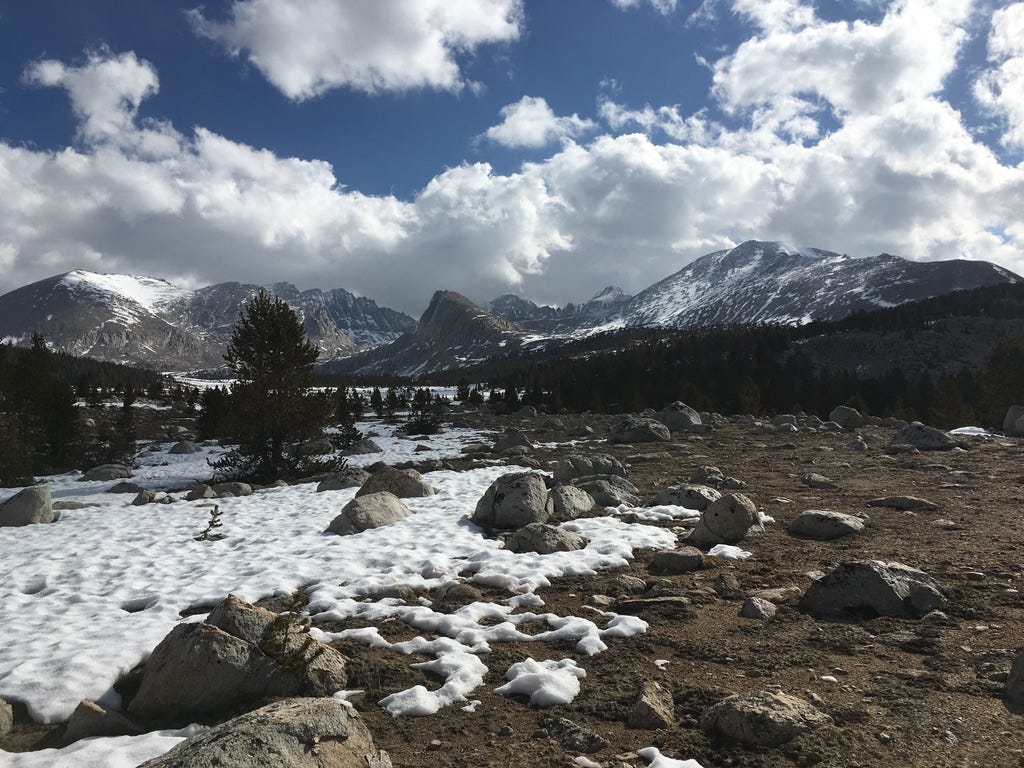
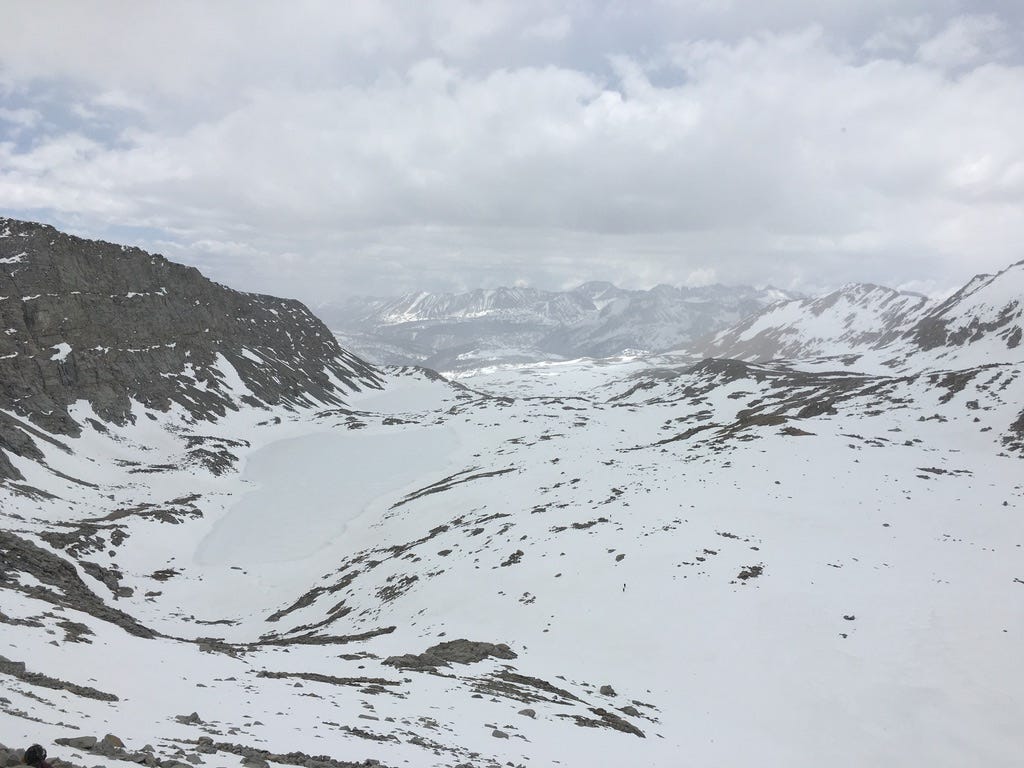

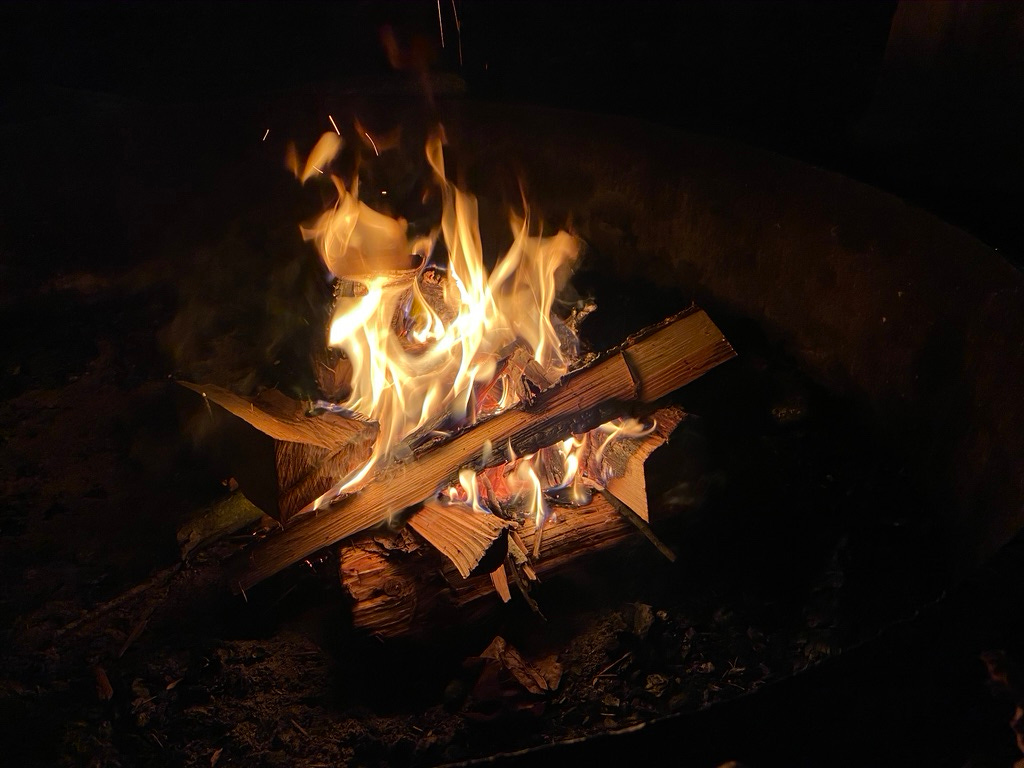


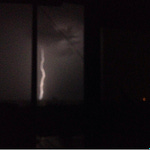
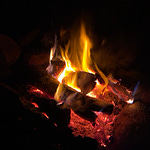
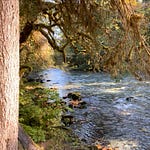
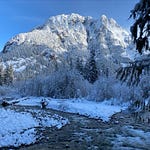

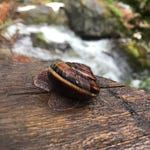
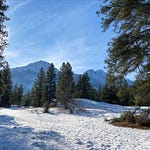
Wolves' Teeth